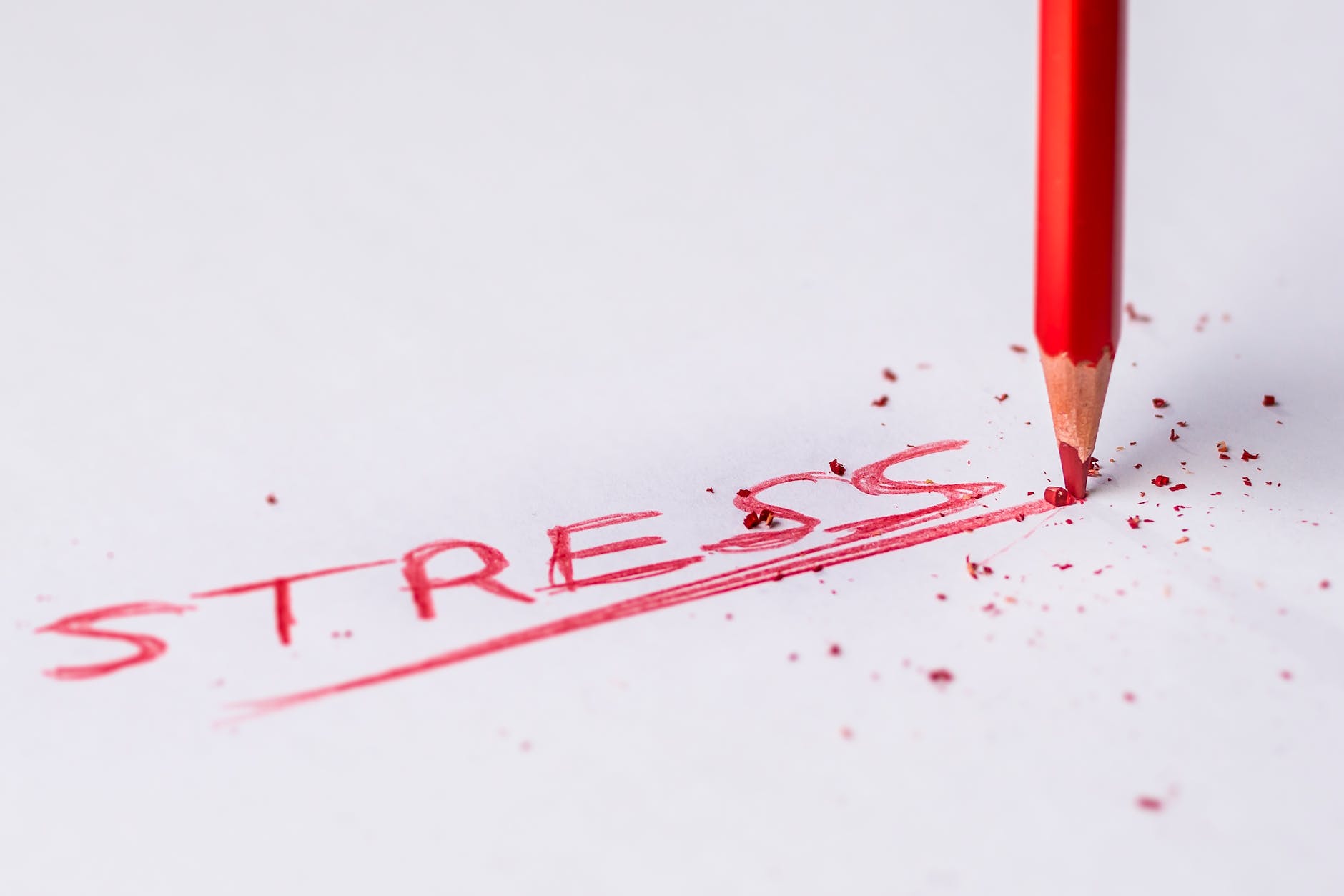The Top 10 Stressors in Life (And How to Deal With Them)

Before diving in, please note: This post is for informational purposes only. If you’d like to know more about how we approach topics, feel free to check out our friendly Disclaimer Page.
Hey there, amazing readers! 🖐️ Just a quick note: yes, we know there are a lot of ads here. Trust us, we get it—it’s not the prettiest look, but they help us keep this blog alive and kicking. Those pesky little ads cover the costs of all the behind-the-scenes magic, from hosting and tech stuff to creating content we hope you’ll love.
We’re committed to delivering quality posts, and your support (even just sticking around despite the ads) means everything to us. So, bear with us, and thanks for helping us keep the good vibes rolling. Now, on to the fun stuff! 😉
TRANSLATE BUTTON AT THE END OF THE ARTICLE
The major challenges that we face in life, the ones that we all fear and that the vast majority of us will almost certainly face at some point in our lives, have the potential to throw our lives into disarray and permanently change both who we are and how we see the world around us.
They also have the ability to make us stronger if we can learn to approach things in a little different manner.
Only if we can take a little different tack will this be the case.
Let me explain…
Stress is a natural component of the human experience, yet it is a component that the vast majority of us would prefer not to have.
Some individuals are more prone to experiencing stress than others, and the effects of stress vary from person to person owing to factors such as temperament, innate personality features, and the ways in which we have been taught (directly and indirectly) how to react to difficult circumstances.
Some individuals have a higher natural tolerance for stress than others and are more sensitive to its effects and more likely to respond negatively to it.
The good news is that studies show that we can take action to enhance how resilient we are.
This is despite the fact that we cannot change how our bodies are naturally wired.
Warning: This sentence contains a spoiler: one of these steps is called a “stress inoculation.”
The Top 10 Causes Of Stress In Life
However, before we can look at how we can build resilience and manage the stresses that people face, we must first understand what those stressors are.
The following is a list of the top 10 sources of stress in life.
1. The Loss Of A Cherished One
This is arguably the most difficult thing that anybody will ever have to go through.
When someone dear to us passes away, we are likely to experience a wide range of emotions and may have trouble figuring out where we belong in the world now that they are gone.
Grief is a difficult and individual experience; no two people will go through it in the same way.
To be able to come to terms with the passing of a loved one, we need to have patience, understanding, and compassion for ourselves.
2. Getting A Divorce Or Living Apart
Many individuals go through the stages of shock, feeling helpless, betrayal, perplexity, and sadness after a divorce or separation, which may be psychologically unpleasant for a number of different reasons.
Reconstructing your identity in the world after the loss of a loved one may be challenging and frightening in similar ways.
3. House Relocation, Purchase, Or Disposal
Moving, buying, or selling a home causes stress for even the most level-headed individuals.
The financial cost of moving, the burden of taking on a loan (sometimes for the first time), and being in an unfamiliar environment all contribute to this stress.
The rollercoaster process of actually buying or selling a home also contributes to this stress.
To the point where forty percent of Americans believe that buying a home is the most stressful event that can happen in modern life.
4. Serious Illness Or Serious Injury
This potentially life-altering event has the potential to affect us in a variety of difficult ways.
Suddenly, our capacity to make a living, as well as the manner in which we are accustomed to being a part of society and making contributions, can be called into question.
Not to mention the anxiety that comes along with not knowing what the future holds and the annoyance that comes along with having to rely on other people for assistance and having less independence.
5. Job Displacement
Especially in our nation, where the first thing someone asks you when you meet them is “What do you do?”, losing a job may make us feel as if we have lost a significant portion of our identity.
When we lose our jobs, it makes it more difficult for us to provide for ourselves and our families.
It generates uncertainty about the future, which might amplify our existing feelings of insecurity.
6. Getting Hitched
A positive kind of stress, to be sure, but it has been recognized for a long time that marriage is an adjustment for many of us.
Understanding what it means to be part of a “married couple” and getting adjusted to the extra expectations and duties that come with that status may be difficult when you are first learning how to live with another person.
7. An Increase In One’s Financial Commitments And The Number Of Decisions That Involve Money
When we take on more financial responsibilities or make significant choices about money, it may bring up some of our deepest-seated worries and fears, such as concerns about lack of resources and our sense of self-worth.
Discover "SUPERFOODS: The Key to Health and Balance🥗" 🌿🌺
Additionally, it is possible for anybody to have trouble sleeping if they feel imprisoned in their work and always have the sensation that they need to be climbing the corporate ladder in order to meet their financial commitments.
8. Retirement
Thinking about retirement is another “pleasing” stressor in the sense that many of us prepare our whole lives for the day when we will finally be able to retire.
This means that thinking about retirement may be a source of stress.
For those that do, this also symbolizes a significant shift in their lives and the beginning of a new identity.
It might be intimidating to realize that you have entered the second part of your life when you are already on more of a fixed income.
9. Providing Care For A Sick Or Elderly Family Member
Not only is this mentally and emotionally taxing, but it may also take a significant toll on the individuals who are affected by it.
Because of the greatly increased responsibilities that they face, often around the clock, many people who provide care for others are unable to provide proper care for themselves.
As a result, they put themselves at risk of a variety of psychological and physiological issues.
10. Traumatic Events (Natural Disasters, Crime, Violence, Pandemic)
The term “this category” may be used to describe a wide range of difficulties, but nonetheless, it seems that the fundamental problem lies in the sense of helplessness more than anything else.
The Best Ways To Deal With Stress
Because of the wide variety of ways in which people are affected by stress, the most effective treatments and coping mechanisms are also, to some extent, personalized.
This means that there is no one formula that is certain to be effective for everyone.
The most efficient kind of management is one that involves customizing a plan to fit the needs of each individual employee.
It’s vital to keep in mind that the way we handle the stress of day-to-day living is a good indicator of how well we’ll handle the stress of major life transitions.
The fundamental component of effective stress management is the maintenance of persistent good behavior.
It is far more difficult for a plan to be successful if its implementation is delayed until after a traumatic incident has already taken place.
Because I am a bit of a tennis nerd, I like to use the analogy of being in the championship match at Wimbledon and having to hit a fantastic kick serve in order to win the tournament.
If you haven’t trained your kick serve right up to the point when you need it, how effective are you going to be?
Do you really think that’s going to happen?
The same may be said for the management of stress.
If you wait until the most stressful, traumatic, and life-changing events are about to take place in your life before attempting to incorporate new habits, it might be more difficult to attain the outcome you desire.
Here Is A List Of 12 Ways To Properly Manage The Pressures That Are A Part Of Everyday Life
1. Be Conscious Of Your Emotions
Maintain awareness of your emotions and give yourself permission to process them as you relate to the stressful experience.
To begin with, this is the most vital item to consider.
All of these occurrences have the potential to arouse significant emotions.
You will be able to finally move on if you are conscious of those feelings and choose an avenue for them to express themselves.
Possibly you are the kind of person who enjoys writing down your thoughts in a notebook, venting to a buddy, or expressing your emotions via painting.
If you aren’t sure what would work for you, choose anything to test out for a small length of time (even five to ten minutes), and then work your way up from there.
2. Self-Talk
The way in which we speak to ourselves is an important component of how we inwardly perceive the stress in our life.
You should work through your feelings and emotions (like we suggested), but you should also be careful to avoid adding to your stress by having critical and judgemental thoughts about the issue or how you are dealing with it.
This will only make things worse for you.
Make an effort to stop criticizing yourself and instead be compassionate and supportive of yourself as you go through this difficult time in your life.
Try to encourage yourself in the same way that you would encourage a close friend or family member.
3. Maintaining A Healthy Diet
Eating correctly not only contributes to the maintenance of a healthy immune system but also boosts one’s energy levels and may assist in the regulation of cortisol levels.
When we are under pressure, we develop cravings for items that actually increase our stress levels (like sugar and processed foods).
Instead, you could experiment with meals that have been shown to relieve stress and anxiety, such as those high in protein and foods high in vitamin B.
4. Make Sure You Don’t Become Dehydrated
When you’re under a lot of pressure, letting yourself become dehydrated is one of the worst things you can do to add to your problems.
Discover "Sports Nutrition: The Importance of Nutrition and Exercise for Overall Health 🥗🏋️"
Dehydration of any degree, even moderate dehydration, may create feelings of worry and despair, as well as decreased energy and increased difficulties in thinking clearly.
5. Make An Effort To Get Enough Rest
When you have a lot on your mind, it is far more difficult to fall asleep and stay asleep than it is to be hydrated since we can coerce ourselves to remain hydrated.
This makes this challenge much more difficult.
There is a correlation between getting sufficient sleep and having an easier time controlling one’s emotions as well as recovering from stressful situations more rapidly.
To improve your chances of being successful, you should make a conscious effort to maintain healthy sleeping habits.
6. Get Some Exercise
Moving about as a means of relieving stress is supported by a significant body of academic research.
Exercising has been found to boost endorphins, which in turn improves sleep, mood, and mental clarity while also helping to cleanse the mind and counteract the negative effects of stress.
7. Pay Attention To The People And Things Around You
Picky about your surroundings, including your physical environment, the people you hang out with, the television shows and newspapers you read, and the people you keep company with.
This is a fundamental aspect of the theory of neuroplasticity.
The human brain is similar to a sponge in that it takes in anything we subject it to and then uses that information to form its own internal reality.
If you expose your brain to people and settings that are serene, tranquil, loving, and pleasant, it will acquire such characteristics.
If you expose it to something that is the reverse of what it is, it will absorb that as well.
8. Define Your Limits and Boundaries
It is essential to get an idea of what you are able to handle while under pressure.
It is of the utmost importance to guard your energy, establish your limits and boundaries, and remain steadfast within them.
It is not inappropriate to advocate for oneself and what one needs.
People will get what you mean.
If they don’t, it’s probably because they are the very reason you need to establish some limits for yourself.
9. Take A Few Deep Breaths. Meditate. Relax
To help you become focused and unwind, incorporate some mindfulness into your daily routine.
According to studies, practicing mindfulness may alter the shape of the brain as well as the activity in areas related to attention and the management of emotions.
Improve your mental state by altering the structure of your brain.
10. Establish a Solid Support Network
Make connections with people.
It has been demonstrated time and again to be an effective tool for managing stress in that it promotes feelings of trust, safety, and comfort, which in turn lowers the body’s response to stress.
Spending time with friends, family, your church, tennis team, garden club, or a support group are all examples of activities that fall into this category.
11. Maintain Your Schedule
Having some idea of what the day will bring helps lessen feelings of worry and tension.
In addition to this, routines may be enjoyable and contribute to better mental and physical health on the whole.
And lastly, the most unexpected strategy for coping with stress that the scientific community has identified, which also has the potential to be the most important:
12. Figure Out a Way to Enjoy the Stress You’re Under
Alia Crum, an assistant professor of psychology at Stanford, is responsible for some of the most recent findings in this field.
Crum suggests that we make an effort to develop a mentality that welcomes and thrives in stressful situations.
You must think I’ve lost my mind, don’t you?
At first glance, it seems like the answer is yes.
However, it is essential that we learn to embrace stress since how we interpret stress determines how we ultimately respond to it.
Crum suggests experimenting with a variety of different views towards stress, including:
1) believing in your ability to cope with stress, despite the fact that you will learn and grow as a result of the difficulties you face; and
2) Accepting the fact that stress is an unavoidable part of life.
There is a phenomenon known as stress inoculation that may be created depending on what one tells themselves about a potentially stressful event.
It has been shown that our brain undergoes major rewiring over a period of many hours after experiencing a large amount of stress.
This rewiring leaves a mark on our brains that make it easier for us to cope the next time we are confronted with a stressful situation.
It is also important to note that studies have shown that when we perceive stress to be harmful to us, we are more prone to resorting to unhealthy ways of dealing with it, such as drinking or using drugs.
A Few Parting Thoughts
Unfortunately, if you are a human being, you will almost certainly go through some significant life transitions at some point in your existence.
Although it is impossible for anybody to be completely ready for disasters, having healthy daily routines in place may make the experience of weathering the storm significantly more tolerable.
There are moments when stress might seem insurmountable.
It is imperative that you communicate how you are currently feeling to your attending physician and seek assistance as necessary.

The Enlightenment Journey is a remarkable collection of writings authored by a distinguished group of experts in the fields of spirituality, new age, and esoteric knowledge.
This anthology features a diverse assembly of well-experienced authors who bring their profound insights and credible perspectives to the forefront.
Each contributor possesses a wealth of knowledge and wisdom, making them authorities in their respective domains.
Together, they offer readers a transformative journey into the realms of spiritual growth, self-discovery, and esoteric enlightenment.
The Enlightenment Journey is a testament to the collective expertise of these luminaries, providing readers with a rich tapestry of ideas and information to illuminate their spiritual path.
Our Diverse Expertise 🌟
While our primary focus is on spirituality and esotericism, we are equally passionate about exploring a wide range of other topics and niches 🌍📚. Our experienced team is dedicated to delivering high-quality, informative content across various subjects ✨.
To ensure we provide the most accurate and valuable insights, we collaborate with trusted experts in their respective domains 🧑🏫👩🏫. This allows us to offer well-rounded perspectives and knowledge to our readers.
Our blog originally focused on spirituality and metaphysics, but we’ve since expanded to cover a wide range of niches. Don’t worry—we continue to publish a lot of articles on spirituality! Frequently visit our blog to explore our diverse content and stay tuned for more insightful reads.







